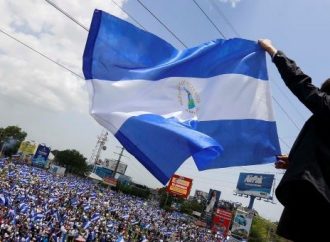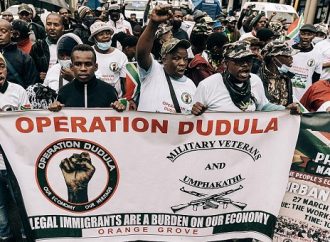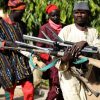On Tuesday, the World Bank stated Nigeria’s economy will grow by 2.5 percent in 2022 and 2.8 percent in 2023, up from an estimated 2.4 percent growth in 2021. The World Bank revealed this in its latest Global Economic Prospects report which was released on Tuesday. World Bank projects Nigeria economy. According to the World
On Tuesday, the World Bank stated Nigeria’s economy will grow by 2.5 percent in 2022 and 2.8 percent in 2023, up from an estimated 2.4 percent growth in 2021. The World Bank revealed this in its latest Global Economic Prospects report which was released on Tuesday.
World Bank projects Nigeria economy.
According to the World Bank, Nigeria economy.ng to the Washington-based institution, higher oil prices and a speedup in telecommunication and financial services will help the economic growth moderately. The report reads, “In Nigeria, growth is projected to strengthen somewhat to 2.5 percent in 2022 and 2.8 percent in 2023.
The oil sector should benefit from higher oil prices, a gradual easing of the Organization of the Petroleum Exporting Countries production cuts, and domestic regulatory reforms. Activity in service sectors is expected to firm as well, particularly in telecommunications and financial services. However, the reversal of pandemic-induced income and employment losses is expected to be slow; this, along with high food prices, restrains a faster recovery in domestic demand.
Activity in the non-oil economy will remain curbed by high levels of violence and social unrest, as well as the threat of fresh COVID-19 flare-ups with remaining mobility restrictions being lifted guardedly because of low vaccination rates — just about 2 percent of the population, had been fully vaccinated by the end of 2021″.
It further predicted that per capita income is expected to be lower in 2022 than a decade ago in countries such as Angola, Nigeria, and South Africa.
“After barely increasing last year, per capita incomes are projected to recover only at a subdued pace, rising 1.1 percent a year in 2022-23, leaving them almost 2 percent below 2019 levels, in South Africa and Nigeria, per capita incomes are projected to remain more than 3 percent below pre-pandemic levels in 2023”. The report reads.
The report also said that global growth is expected to decelerate markedly from 5.5 percent in 2021 to 4.1 percent in 2022, then 3.2 percent in 2023.
According to David Malpass, World Bank president, “the world economy is simultaneously facing COVID-19, inflation, and policy uncertainty, with government spending and monetary policies in uncharted territory. Rising inequality and security challenges are particularly harmful to developing countries, putting more countries on a favorable growth path requires concerted international action and a comprehensive set of national policy responses”, he added.
However, it must be noted that the Nigerian economy entered a recession in 2020 due to fall in crude oil prices and a containment measure to fight the spread of COVID-19, which largely affected aviation, tourism, hospitality, manufacturing and trade.
“The World Bank is an international financial institution that provides loans and grants to the governments of low- and middle-income countries for the purpose of pursuing capital projects. It comprises two institutions: the International Bank for Reconstruction and Development (IBRD), and the International Development Association (IDA). The World Bank is a component of the World Bank Group.
The World Bank’s most recently stated goal is the reduction of poverty. The World Bank was created at the 1944 Bretton Woods Conference, along with the International Monetary Fund (IMF). The president of the World Bank is traditionally an American. The World Bank and the IMF are both based in Washington, D.C., and work closely with each other.
The Gold Room at the Mount Washington Hotel where the International Monetary Fund and World Bank were established. Although many countries were represented at the Bretton Woods Conference, the United States and the United Kingdom were the most powerful in attendance and dominated the negotiations. The intention behind the founding of the World Bank was to provide temporary loans to low-income countries that could not obtain loans commercially. The Bank may also make loans and demand policy reforms from recipients”. This section is culled from WIKIPEDIA.


















Leave a Comment
Your email address will not be published. Required fields are marked with *